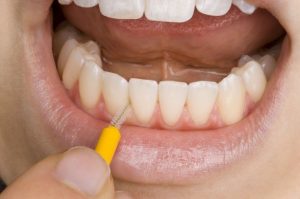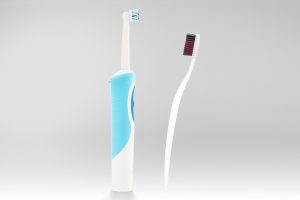Blog
A Definitive Guide To Effective Teeth Cleaning

Dentists recommend a thorough 2 minute clean twice a day, with flossing and the occasional hygiene visit if and when needed. These are the basics we’ve always known, but when we clean our teeth out of routine without thinking about it, how can we be sure we’re ticking all the boxes?
Toothbrush
Electric or manual? Soft or hard bristles? There’s lots of choice when it comes to toothbrushes. Electric toothbrushes do clean teeth more thoroughly, although you may slack on active brushing because you think the rotating head is doing all the work for you, in which case they lose their effectiveness. For more detailed advice on which toothbrush is best for you, read our blog post ‘Choosing The Right Toothbrush’.
Not only is it important to decide which toothbrush you use, but also how to use it as well.
Brushing your teeth at 6am when you’re half awake may mean you’re neglecting certain areas in your mouth. Jessica Hilburg from the NYU College of Dentistry pointed out that many people only focus on the front side of their teeth. It’s important to remember to look after your gums too, as gum disease effects 3 out of every 4 adults over the age of 35 in the UK – taking care of your teeth and gums is the best form of prevention. Remember, if your gums bleed when you brush your teeth, it’s best to speak to your dentist about it.
Toothpaste
Toothpaste is used to remove plaque from the surface of our teeth – a bacteria that can cause cavities, gum disease and possible tooth loss if left untreated. Thankfully, toothpaste is an easy and effective way of removing plaque, and there are a wide range of toothpastes readily available, including whitening, fresh breath and desensitising ranges. Your dentist may recommend you use desensitising toothpaste if consuming cold food and drinks such as ice cream or iced coffee causes you discomfort. Deciding what toothpaste to use is a personal choice, so as long as you use it, you can’t go wrong! For more detailed advice on the right toothpaste for you, read our blog post ‘The Ultimate Toothpaste Guide’.
Flossing
 You can almost predict that your dentist will ask you if you floss during your appointment, and if you don’t, you may mumble a slightly embarrassed “Occasionally…”. Flossing is a simple way to reach areas of the teeth that your toothbrush hasn’t touched. Ideal for removing plaque and food remains stuck in the small gaps between teeth, flossing can be done using dental floss or tape. Your dentist make recommend you use interdental brushes if you have bigger gaps. You should try to floss once a day.
You can almost predict that your dentist will ask you if you floss during your appointment, and if you don’t, you may mumble a slightly embarrassed “Occasionally…”. Flossing is a simple way to reach areas of the teeth that your toothbrush hasn’t touched. Ideal for removing plaque and food remains stuck in the small gaps between teeth, flossing can be done using dental floss or tape. Your dentist make recommend you use interdental brushes if you have bigger gaps. You should try to floss once a day.
Mouthwash
Another area we may neglect with our toothbrush is the roof of the mouth. Some people don’t like the sensation of touching the roof of their mouth due to the concentration of nerves in the area making it sensitive and ticklish. This is one of the biggest reasons to use mouth wash – to reach plaque and bacteria in places your toothbrush hasn’t reached. Mouthwash is also a good tool for fighting bad breath, plaque and other oral hygiene issues. There are a variety of mouthwashes available, but as a rule any fluoride mouthwash is efficient and inexpensive.
If you’re a new patient, book your free consultation with Katherine, who can arrange a treatment plan for you. If you’re concerned about bleeding gums, book an appointment to speak to your dentist. To book an appointment with our friendly hygienist Jon, call Shifnal Dental Care on 01952 460119.
Share this post:

